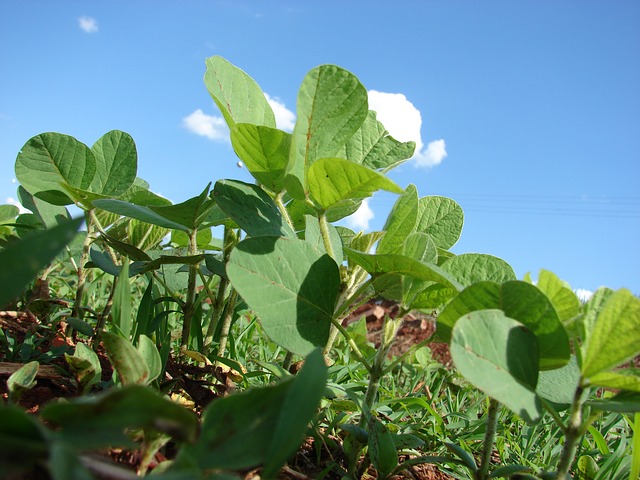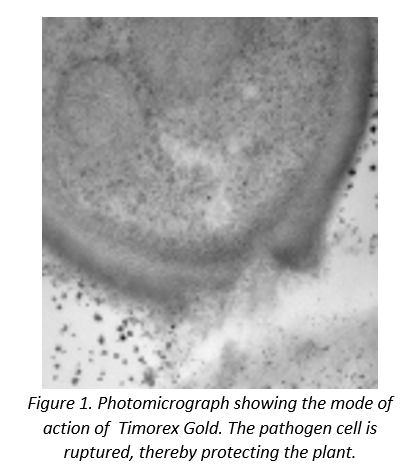Agrochemicals
Combining the powers of biological agents and synthetic chemistries 1st November 2018
By our Editorial Team
We speak to Professor Moshe Reuveni, Chief Scientist at STK bio-ag technologies, about the advantages of biopesticides and a

We speak to Professor Moshe Reuveni, Chief Scientist at STK bio-ag technologies, about the advantages of biopesticides and a new generation of ‘hybrid’ products that may present a new era in pest control.
As a leader in biopesticides innovation, STK Bio-ag Technologies (formerly Stockton) is pioneering a new generation of ‘hybrid’ products that combine the powers of biological agents and synthetic chemistries, and which may present a new era in pest control. With recent partnership agreements with industry giants such as BASF and Syngenta, this seemed like a great time for Chemicals Knowledge to catch up with STK’s Chief Scientist, Professor Moshe Reuveni.
STK seems to be in a great place right now! How have the values and mission of the company led you here?
STK was founded and is headquartered in Israel, the ‘innovation nation’! Innovation and sustainable agriculture are in our DNA, and we are committed to the values of sustainable agriculture – from field to fork. This stems from our main mission to provide premium, highly effective products, with low chemical residues and novel and unique mechanisms of action (MOA). We also aim to provide additional yield benefits, and to ensure that our products are flexible and easy to apply, and chemically compatible with many other active ingredients.

What are the main benefits of biopesticides?
There are many advantages. Biopesticides come from nature – they may be plant extracts, like Timorex Gold, which effectively ruptures pathogen cells (Figure 1), or bacteriological, like Aviv, a powerful Bacillus subtilis requiring less than half the dosage of other biopesticides. In any case, biopesticides contain no synthetic chemicals. They are produced from renewable sources, and they leave minimal crop residue, making crops treated with biopesticides much more competitive in domestic and international markets. Regulators, consumers and retail supermarkets all want to reduce the chemical residue on their produce.
The selectivity of biopesticides, which target only their natural enemies, also helps to maintain beneficial insect and mite populations, ensure worker safety and promote environmental safety.
Today’s biopesticides are as effective – or even more effective – than synthetic chemical pesticides, in terms of crop protection and increasing yields. Furthermore, biopesticides are an important weapon in managing pesticide resistance. They can help reduce the selection pressure for the evolution of resistance to synthetic pesticides, and the risk of pests and pathogens developing resistance to biopesticides is low, especially as these agents often have multiple modes of action.
Switzerland recently announced that it is considering a total ban of synthetic pesticides – do you think it is feasible to have a world free of synthetics?
The world’s population is expected to grow from the current 7 billion people to 9 billion people by 2050. In order to feed all of these people and avoid mass starvation, mankind will need to double crop yields globally. This is a tall order, and to achieve this, growers will need effective tools for combating diseases – we think this will need to include biopesticides and synthetic chemical pesticides; or hybrid technologies that combine the two.
The use of biopesticides is forecast to grow by 15% to 20% annually for the foreseeable future, while synthetic chemical use is predicted to grow at a slower annual rate of 3%. If those growth rates are maintained, eventually we will be in a situation where more biopesticides than synthetic pesticides are being used. We think this will be a good situation to be in, for the many reasons discussed above, but we still see a continued need for good synthetic pesticides.
Can you tell us more about ‘hybrid’ technologies and how they expect to encourage uptake of biological agents?
STK has introduced the world’s first ‘hybrid’ pesticide, Regev – the ‘pre-mix’ of a synthetic pesticide with a botanical-based biopesticide. Specifically, it combined a Tea Tree botanical extract and difenoconazole in an easy-to-use formulation. The combination of a natural product with broad-spectrum activity and a traditional site-specific synthetic provides growers with the different modes of action of a botanical-based active ingredient and an effective chemical pesticide. The hybrid combination results in a reduced synthetic chemical load on the environment, compared with other traditional mixtures based on two synthetic chemicals. Regev is an effective and unique tool for resistance management, and it is clearly suitable for Integrated Pest Management (IPM) programs.
This product is also a bridge for growers who have never previously tried a biopesticide. These growers can use Regev in exactly the same way as their current chemical pesticide: no mixing, no rotating, easy-to-use… and with the benefits of lowering chemical residues, improved resistance management and yield growth. Regev will accelerate the uptake of biological products by making it easy.
Historically, biopesticides have been used largely on high-value crops, such as fruits and vegetables, but hybrids like Regev are not only being used on fruits and vegetables, but have proven to be a cost-effective approach for row crops like soy beans, and field and broad acre crops like corn. Regev is already being used in 10 countries throughout Latin America, Israel, Serbia and the Philippines. Plans for 2019 call for the global rollout of REGEV.
How are you working with global majors to encourage global distribution of these technologies?
To accelerate the distribution of STK’s biological technologies for sustainable agriculture, we have entered into partnerships with various companies. In Brazil, Timorex Gold botanical-based biofungicide is co-distributed by both STK and BASF, which is proving to be very effective in this very large country. In Argentina, REGEV is distributed by SummitAgro, and in the US, Aviv, the low-dose Bacillus subtilis biofungicide, is distributed by SimAgro. Not all of our distributors are the global majors, and STK is always open to partnerships with companies large, medium and small.
What’s next for STK?
Beyond the continuing geographic distribution of Timorex Gold, Regev and Aviv, STK has a powerful pipeline of new biological products to provide new tools to help growers reach the goal of doubling their yields by 2050. This pipeline includes new biopesticides based either on powerful natural plant molecules or plant extracts to be used as bio-fungicides or bio-insecticides. In addition, new hybrids combining natural active ingredients and reliable synthetic active chemicals, to be used on wide range of crops and pathogens, are under development.
Interview with:
Professor Moshe Reuveni, Chief Scientist at STK bio-ag technologies, Ha’Mefalsim St 17, POB 3517, Petach Tikva 4951447, Israel
Professor Moshe Reuveni, Chief Scientist at STK bio-ag technologies, Ha’Mefalsim St 17, POB 3517, Petach Tikva 4951447, Israel
T: +972 72 2570000



